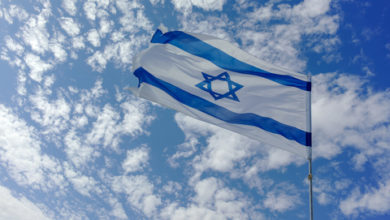A Perfect Passover
The special Haftarah reading for this week (Parshat Hachodesh) is a prophecy by Ezekiel which describes a unique set of sacrifices. The question of the differences between the prophet’s description and the laws of sacrifices in the Torah was already addressed in the days of the Tana’im, who wrote the Mishna, and the apparent contradictions were explained in an analysis by Chananiah Ben Chizkiyah Ben Garon (Shabbat 13b). However, since his explanations were not handed down to us, the early commentators disagreed about Chananiah’s ideas. For example, perhaps the prophecy is a temporary command for the first year after the construction of the Third Temple (Rambam), or it may be referring to the time after resurrection, when all mitzvot will be cancelled, or the prophet was indeed modifying the halacha (see the commentary of Rabbi Yehudah Ibn Balaam).
Irrespective of the halachic validity of the prophecy, we can see in it a picture of a world which is very different from the one with which we are familiar. The Torah commands that one sheep or goat must be sacrificed on the fourteenth of Nissan for every group of celebrants, but Ezekiel gives a command that only one sacrifice should be brought by the leader for all of Bnei Yisrael. And it is a bull and not a sheep, and a Chatat Sacrifice and not a Shelamim. There is no longer any need to mention the Exodus from Egypt, since a more important redemption has come after it. This is certainly true of the rabbis who disagreed with Ben Zoma and who feel that there will be no obligation to mention the redemption from Egypt once the Messiah has come (Berachot 12b). We therefore no longer slaughter a kid of the type that the Egyptians worshipped. The bull of the Chatat, similar to the bull of Yom Kippur, is brought to atone for the sins of the nation during its last exile.
The Holiday of the Matzot, Passover, which marks the eternal freedom after the last redemption, continues for seven days. In Ezekiel’s prophecy, every day seven bulls and seven rams are sacrificed, not two bulls and one ram as in the Mussaf sacrifices in the Torah. This symbolizes the existence of a world where the light of the sun is seven times brighter than the light of the seven days (Isaiah 30:26). There will be no sheep, which are a symbol of further development, or a goat brought as a Chatat Sacrifice, because the repair of the world will be finished. The amounts of wheat brought for the Mincha and the amounts of oil will be full measures and not fractions. A full “eiphah” of flour, not divided into tenths, and a full “hin” of oil, not half or a third of a hin.
The only other holiday is Succot, which has sacrifices that are the same as the ones brought on the Holiday of the Matzot. This marks the victory of the war against Gog and Magog, as is described by Zechariah (14).
The holidays of Shavuot and Succot, which are symbols of the giving of the Torah, will no longer exist since the world will have reached the stage described in the Midrash: “In this world I gave you Torah, in the distant future I will give you life” [Kohellet Rabba]. Rosh Hashanah and Yom Kippur will also not exist anymore, since there are no longer any sins and G-d is permanently recognized as the King.
The most remarkable element in all of this is the daily Tamid sacrifices, where a sheep in the morning and a sheep in the afternoon are replaced by a single sheep that is brought every morning. This is a hint that darkness will be vanquished from the world, and there will be light as evening approaches (Zechariah 14:7).
Source: “AS SHABBAT APPROACHES” – a biweekly column in Shabbat B’Shabbato (Zomet Institute) See: http://www.zomet.org.il/eng – Vayikra 5775, issue 1567.




One Comment